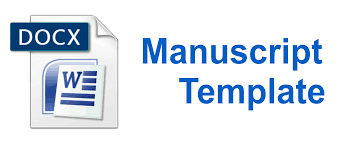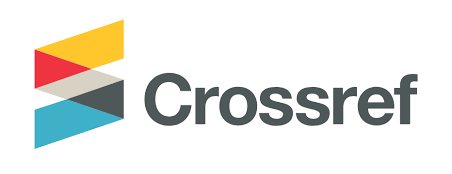The Influence of Students’ Reading Strategies on Comprehending Reading Texts
DOI:
https://doi.org/10.55681/armada.v2i7.1406Keywords:
Reading Comprehension, Reading StrategiesAbstract
Reading is an essential component of language training at all levels since it promotes a variety of learning methods in addition to being a source of knowledge and fascinating experiences. Strategies in Reading refer to methods used to improve students’ reading ability to get the meaning of the text. This study was intended to investigate the reading strategies used by Semarang University Students taking English course in the second semester. This study focused on identifying the influence of reading strategies on comprehending the overall reading texts. Sixty-four undergraduate students acted as the respondents for this study by distributing questionnaires. The data then were tested by using a regression test. The results show that the sig value was 0.000 < 0.05 with the conclusion that the ability to manage reading strategies influenced overall reading comprehension abilities. has a positive influence of 30% on overall reading comprehension ability. The regression equation obtained is what can be interpreted as every time the reading strategy management ability increases by 1 unit, the overall reading comprehension ability increases by 0.679 units. This means that the use of reading strategies influences overall reading comprehension. While the most used strategy was I stop from time to time and think about what I’m reading (problem solving, the least used was I skim the text first.
Downloads
References
Anderson, N. (2003). Scrolling, clicking and reading English: Online reading strategies in a second/foreign language. The Reading Matrix 3(3): November 2003.
Alderson, J. C. (2000). Assesing Reading. Cambridge University
Annisa, T. P. N., Thamrin, N. R., & Oktoma, E. (2023). THE INFLUENCE OF METACOGNITIVE STRATEGIES TOWARDS STUDENTS’ READING COMPREHENSION. Journey:Journal of English Language and Pedagogy, 6(2), 421–429
Banditvilai, Choosri.(2020). The Effectiveness of Reading Strategies on Reading Comprehension. International Journal of Social Science and Humanity 10(2): 46–50
Brown, H. D. (2004). Language Assessment Principle and Classroom Practice. Longman.
Deliany, Z., & Cahyono, B. Y. (2020). Metacognitive Reading Strategies Awareness and Metacognitive Reading Strategies Use of EFL University Students across Gender. Studies in English Language and Education, 7(2), 421–437.
Dreyer, C. (1998). Improving students’ reading comprehension by means of strategy instruction. Journal for Language Teaching 31: 18–29.
Duke, Nell K, and P David Pearson. (2004). Effective Practices for Developing Reading Comprehension. What Research Has to Say about Reading Instruction. Effective Practices for Developing Reading Comprehension: 205–42
Erler, Lynn. (2012). Teaching and Researching Reading. System 40(3): 437–38
Fitriana, Meida. (--). Students’ Reading Strategies in Comprehending Academic Reading: A Case Study in an Indonesian Private Collage. International Journal on Education, Vol. 2 No.2 pp 43-51.
Filderman, M. J., Austin, C. R., Boucher, A. N., O’Donnell, K., & Swanson, E. A. (2022). A Meta-Analysis of the Effects of Reading Comprehension Interventions on the Reading Comprehension Outcomes of Struggling Readers in Third Through 12th Grades. Exceptional Children, 88(2), 163–184. https://doi.org/10.1177/00144029211050860
Ghazal, Lotfi. (1997). Learning Vocabulary in Efl Contexts Through Vocabulary. Novitas Royal 1(2): 84–91.
Grabe, W. (2009).Reading in a Second Language: Moving from Theory to Practice. Cambridge University
Grabe, W, &Stoller, F.L (2002). Teaching and Researching Reading. Longman
Jou, Yi-Jiun (2015). Investigation of Technological University Students’ Use of Metacognitive Reading Strategies in First and Second Languages.Published by Canadian Center of Science and Education.Department of Applied Foreign Languages, Cheng Shiu University.
Jusoh, Zailani and Abdullah, Liza. (2015). Online Survey of Reading Strategies (OSORS): Students’ Online Reading in Academic Contect. Malaysian Journal of Distance Education 17(2), 67-81.
Khairiani. S. (2012). The Use of Metacognitive Strategy In Comprehending Reading TOEFL Test Materials Among University Students. Indonesia Educational University.
Pookcharoen, S. (2009). Metacognitive online reading strategies among Thai EFL university students. PhD diss., Indiana University, USA.
Pratiwi, Novia. (2017). The Effect of Applying Extensive Reading Strategy on the Students’ Vocabulary Mastery in Reading.
PRILS (Progress in International Reading Literacy). (2013). http://litbang.kemdikbud.go.id
Wahyudi, Arief and Firmansyah, Ihwan. (2023). The Effectiveness Extensive Reading on the Students’ Ability in Reading Comprehension. Journal on Education Vol 05, No.04 Mei - Agustus. Pp. 15452-15459.
Downloads
Published
How to Cite
Issue
Section
License
Copyright (c) 2024 Qurinta Shinta

This work is licensed under a Creative Commons Attribution-ShareAlike 4.0 International License.








